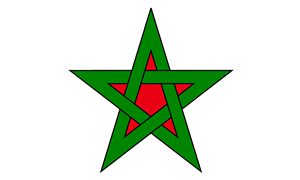| Nationality Declaration |
| Flags and Seals |
| The Apocalypse of a Moor |
| Our Fight |
| Republic Clothing Co. |
| Contact Us |

| Noble Drew Ali |
| International Law |
| Significant U.S. History |
| Cases and Codes |
| Misconceptions |
| Living in the Matrix |
International Law
International law is a set of customs, rules and principles governing the relations and conduct of nation/states with each other, as well as with international organizations and individuals. Issues that fall under international law include trade, human rights, diplomacy, enviromental preservation, and war crimes. Different international bodies, such as the United Nations and World Trade Organization, are responsible for overseeing these issues. Generally speaking, the goal of international law is to promote peace and order between nation/states.
International law largely operates upon the consent of participating nations because no governing body exixts to explicitly enforce international agreements. It includes concepts of law-such as statutes, property law, and tort law-that are common in many Western domestic legal systems. Treaties and the threat of economic sanctions work to create heavy incentives for abiding by international law. Substantive law, procedural law, due process, and remedies are also key facets of international law. Below are some study materials and treaties which are relevant to our situation.
|
 |
|
Even though several nations have signed on to the charter of the United Nations, the United Nations cannot enforce those laws directly in the same way that a sovereign state can enforce its laws domestically. International law is enforced through treaties which are binding agreements between nations that govern the rights and obligations of participating countries. Sovereign states use treaties to cooperate on various issues such as military defense, environmental conservation, and trade. International treaties generally cannot conflict with domestic law. The use of international conventions, i.e. treaties, was codified in the 1969 Vienna Convention on the Law of Treaties.
International Legal Principles and Concepts
If we are to free ourselves, we must move as a Nation. Nations move with one mind. Nations are united in their Culture. Our issues with the several United States of America and the U.S. corporation are issues between two nations, and must be looked at and dealt with from an International perspective. The one main goal of the Moorish Republic is the international recognition of Moorish Republic Nationality.
International Communications
Our path to freedom comes through the enforcement of the Human Rights treaties against the United States. Everything else will fall into place after that. The U.N. Declarations have no authority or power. They merely express the intent. It is the treaties that we are supposed to be enforcing as a Nation of people being oppressed by a foreign occupying power.